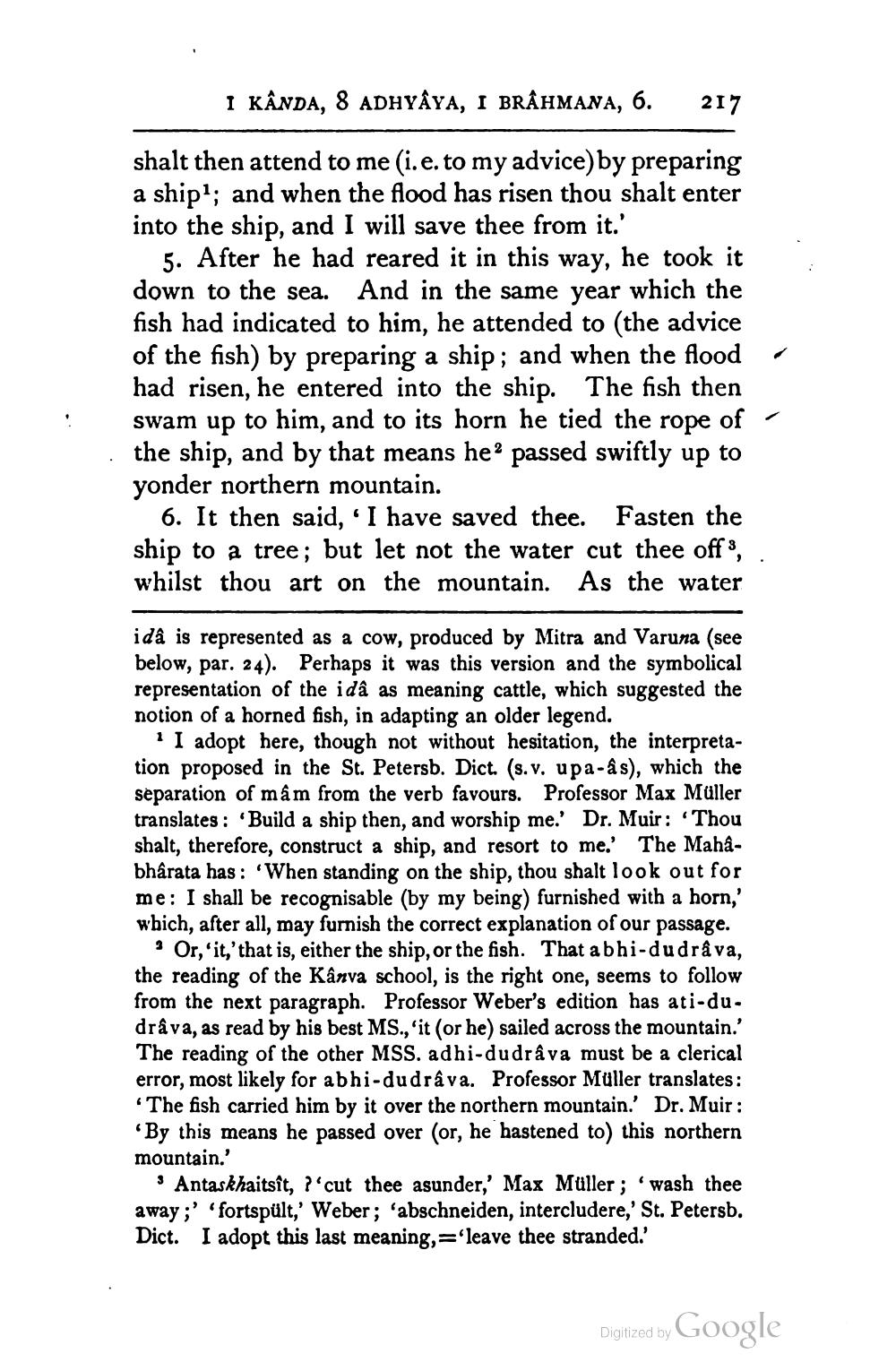________________
I KÂNDA, 8 ADHYÂYA, I BRÂHMANA, 6.
217
shalt then attend to me (i.e. to my advice) by preparing a ship; and when the flood has risen thou shalt enter into the ship, and I will save thee from it.'
5. After he had reared it in this way, he took it down to the sea. And in the same year which the fish had indicated to him, he attended to (the advice of the fish) by preparing a ship; and when the flood had risen, he entered into the ship. The fish then swam up to him, and to its horn he tied the rope of the ship, and by that means he’ passed swiftly up to yonder northern mountain.
6. It then said, 'I have saved thee. Fasten the ship to a tree; but let not the water cut thee offs, whilst thou art on the mountain. As the water
ida is represented as a cow, produced by Mitra and Varuna (see below, par. 24). Perhaps it was this version and the symbolical representation of the idâ as meaning cattle, which suggested the notion of a horned fish, in adapting an older legend.
II adopt here, though not without hesitation, the interpretation proposed in the St. Petersb. Dict. (s. v, upa-as), which the separation of mâm from the verb favours. Professor Max Müller translates : Build a ship then, and worship me.' Dr. Muir: Thou shalt, therefore, construct a ship, and resort to me.' The Mahabharata has: "When standing on the ship, thou shalt look out for me: I shall be recognisable (by my being) furnished with a horn,' which, after all, may furnish the correct explanation of our passage.
? Or,'it,'that is, either the ship, or the fish. That abhi-dudråva, the reading of the Kanva school, is the right one, seems to follow from the next paragraph. Professor Weber's edition has ati-du. drâva, as read by his best MS., 'it (or he) sailed across the mountain.' The reading of the other MSS. adhi-dudrâ va must be a clerical error, most likely for abhi-dudrâva. Professor Müller translates: "The fish carried him by it over the northern mountain.' Dr. Muir: "By this means he passed over (or, he hastened to) this northern mountain.'
Antaskhaitsît, ?'cut thee asunder,' Max Müller; wash thee away ;' 'fortspült,' Weber; 'abschneiden, intercludere,' St. Petersb. Dict. I adopt this last meaning,='leave thee stranded.'
Digitized by Google




